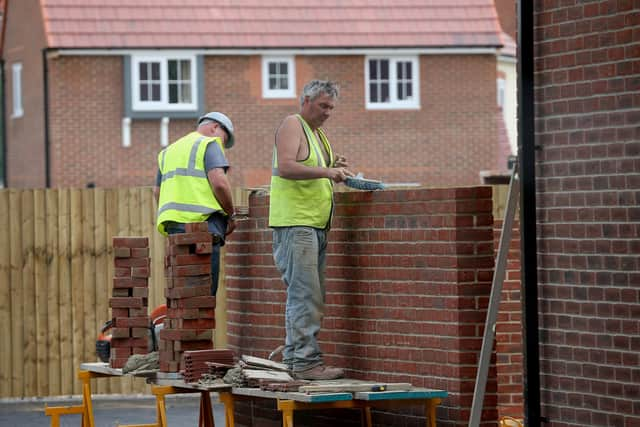Building future lies in industrialised construction - Scott Johnston


This dynamic requires the construction industry to play its part in reducing carbon emissions and to innovate into speedier, greener ways of working.
As it stands, the global construction sector is generally ill-equipped to meet the demands placed on it. While progress has been made, its capacity to react is hampered by analogue rather than digital ways of working, and a skills shortage in a number of markets.
Advertisement
Hide AdAdvertisement
Hide AdBusiness models are built on productivity levels behind those of other industries - the construction industry has improved its labour productivity by an average of 1 per cent annually over the last two decades, compared to an average 3.6 per cent annually in manufacturing. Construction, of course, involves greater complexity than much of manufacturing, but the contrast is still stark.


At the same time, the traditional allocation of risk down the supply chain and tight profit margins, combine to breed an adversarial culture and make it harder for industry players to work together to deliver projects on time and on budget.
But the industry can rise to the challenges of the era and huge opportunities lie in the many facets of Industrialised Construction (IC). At the heart of IC is the greater use of data and digital technology to understand, deliver and measure the performance of infrastructure and other built assets. IC also means improving standardisation of the way project components are made and the design and construction processes – a commoditisation outlook.
How can data help? The built environment accounts for more than 40 per cent of all emissions globally as well as 50 per cent of the extraction of earth resources and is the biggest single contributor to waste globally. Data will help identify which materials have already been used across the built environment and how these might be recovered and reused in future projects. And smarter data sharing will better integrate supply chains and encourage problem solving collaboration.
As for greater standardisation, that can be achieved through manufacturing more components in specialist factories. Combining factory processes, skilled manufacturers and automation, means construction components can be produced much faster, at greater scale and with fewer defects and reduced waste, than is the case currently.
IC also contemplates seamless integration of health and safety processes, quality controls and digital payment systems into construction operations. A combination of political, economic, social and environmental factors is leading the construction sector to increasingly adopt IC. While the concept is in its relative infancy, those behind major infrastructure projects - such as HS2 – already plan on embracing it.
Fundamental changes in culture and practices in the construction sector are necessary for IC to become truly embedded, but it has the potential to improve productivity and profit margins, attract diverse, innovative talent to the industry and to achieve significant decarbonisation gains – prizes worth changing for.
Scott Johnston, Partner and specialist in construction and engineering law at Pinsent Masons
Comments
Want to join the conversation? Please or to comment on this article.